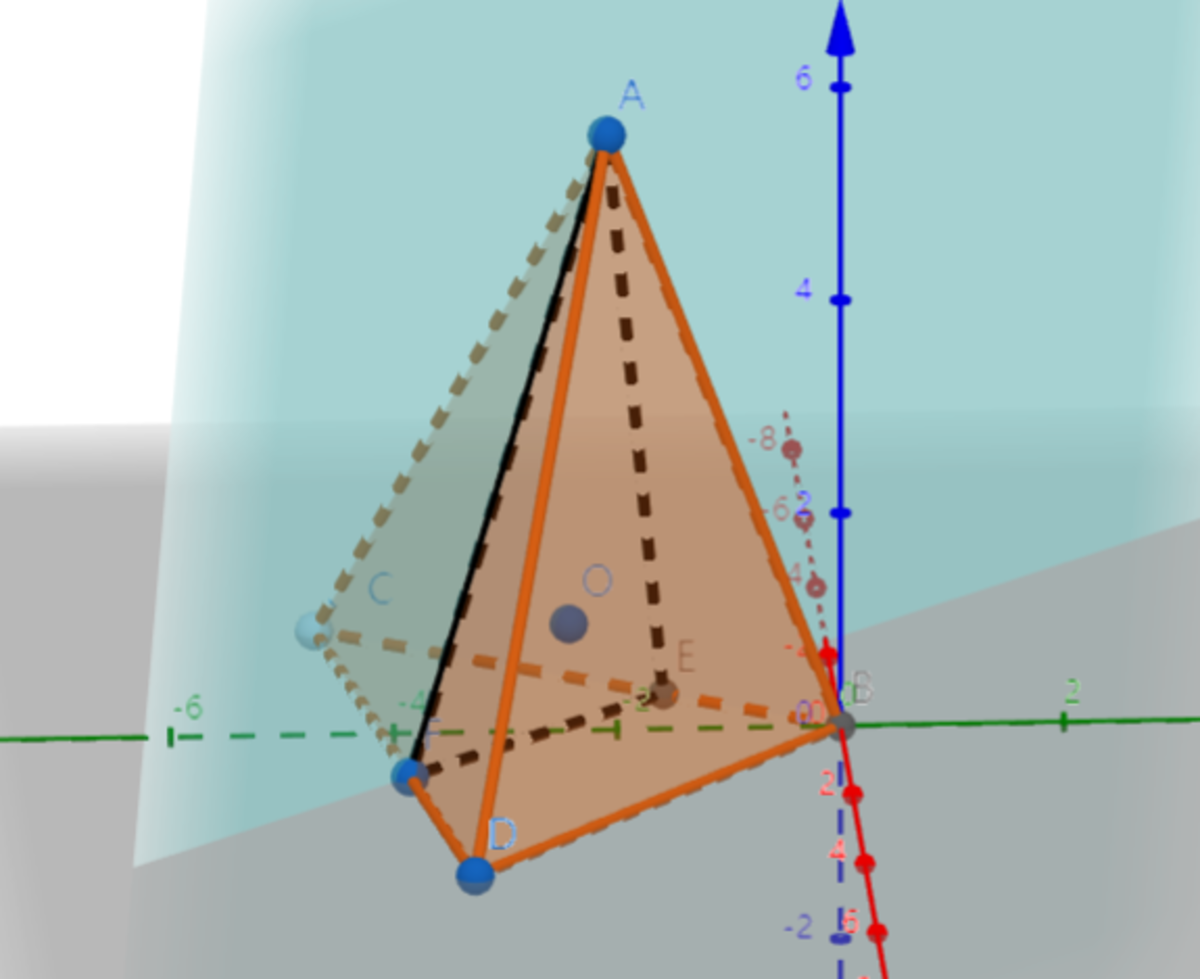SAT1000 - P594

As shown above, in triangular pyramid , the cross section passes through the center of the inscribed sphere (i.e. The sphere which is tangent to all of the faces of the solid) of , and it intersects with at point respectively.
If the cross section divides the pyramid into two parts whose volumes are equal, is the surface area of solid , is the surface area of solid , what is always true for and ?
Have a look at my problem set: SAT 1000 problems
This section requires Javascript.
You are seeing this because something didn't load right. We suggest you, (a) try
refreshing the page, (b) enabling javascript if it is disabled on your browser and,
finally, (c)
loading the
non-javascript version of this page
. We're sorry about the hassle.
Let's express the volume of the two parts of the triangular pyramid in terms of the areas of their surfaces:
Volume of A-BEFD = 3 1 r ( [ A B E ] + [ A F D ] + [ A D B ] + [ B E F D ] )
where r is the radius of the inscribed sphere, and [ ⋅ ] denotes the area of the indicated polygon. Similarly,
Volume of A-EFC = 3 1 r ( [ A E C ] + [ A F C ] + [ E F C ] )
Since the two volumes are equal , we deduce that,
[ A B E ] + [ A F D ] + [ A D B ] + [ B E F D ] = [ A E C ] + [ A F C ] + [ E F C ]
Adding [ A E F ] to both sides, results in
S 1 = S 2